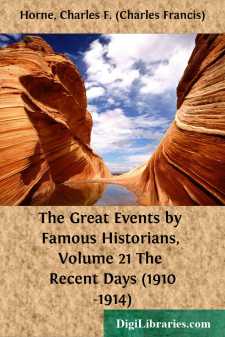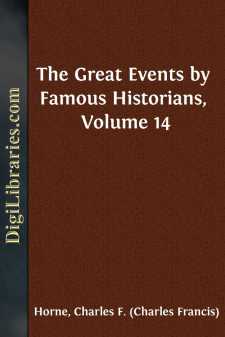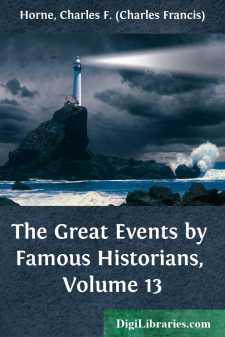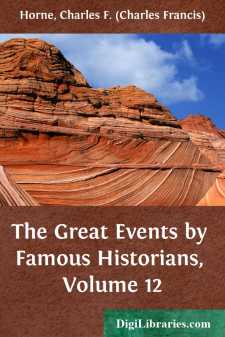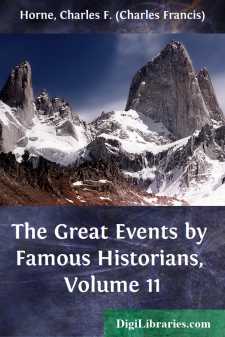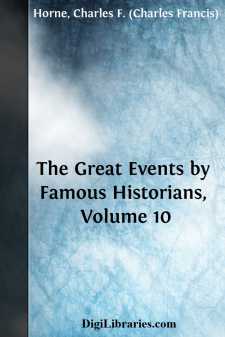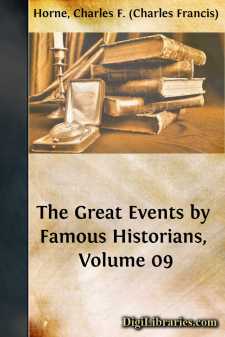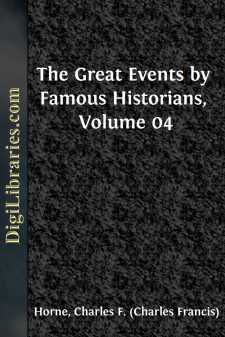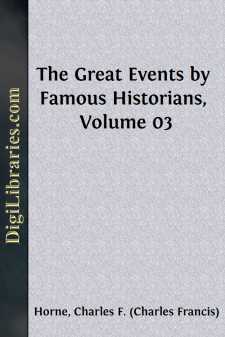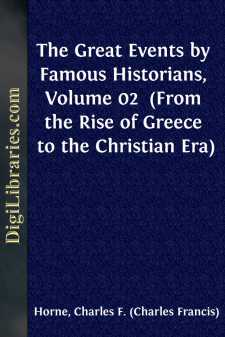Categories
- Antiques & Collectibles 13
- Architecture 36
- Art 48
- Bibles 22
- Biography & Autobiography 813
- Body, Mind & Spirit 141
- Business & Economics 28
- Children's Books 12
- Children's Fiction 9
- Computers 4
- Cooking 94
- Crafts & Hobbies 4
- Drama 346
- Education 46
- Family & Relationships 57
- Fiction 11826
- Games 19
- Gardening 17
- Health & Fitness 34
- History 1377
- House & Home 1
- Humor 147
- Juvenile Fiction 1873
- Juvenile Nonfiction 202
- Language Arts & Disciplines 88
- Law 16
- Literary Collections 686
- Literary Criticism 179
- Mathematics 13
- Medical 41
- Music 40
- Nature 179
- Non-Classifiable 1768
- Performing Arts 7
- Periodicals 1453
- Philosophy 64
- Photography 2
- Poetry 896
- Political Science 203
- Psychology 42
- Reference 154
- Religion 513
- Science 126
- Self-Help 83
- Social Science 81
- Sports & Recreation 34
- Study Aids 3
- Technology & Engineering 59
- Transportation 23
- Travel 463
- True Crime 29
Charles F. (Charles Francis) Horne
Charles Francis Horne was an American author and editor born in 1870, notable for his extensive work in compiling historical texts and literary anthologies. He is best known for his multi-volume series, "The Great Events by Famous Historians," which offers a comprehensive collection of significant historical narratives. Horne's work has been influential in making historical and literary knowledge more accessible to the general public.
Author's Books:
Sort by:
AN OUTLINE NARRATIVE TRACING BRIEFLY THE CAUSES, CONNECTIONS, AND CONSEQUENCES OF THE GREAT EVENTS THE RECENT DAYS (1910-1914) CHARLES F. HORNE The awful, soul-searing tragedy of Europe's great war of 1914 came to most men unexpectedly. The real progress of the world during the five years preceding the war had been remarkable. All thinkers saw that the course of human civilization was being...
more...
"After us, the deluge!" said Louis XV of France. He died in 1774, and the remaining quarter of the eighteenth century witnessed social changes the most radical, the most widespread which had convulsed civilization since the fall of Rome. "As soon as our peasants seek education," said Catharine II of Russia to one of her ministers, "neither you nor I will retain our places."...
more...
uring the eighteenth century a remarkable change swept over Europe. The dominant spirit of the time ceased to be artistic as in the Renaissance, or religious as in the Reformation, or military as during the savage civil wars that had followed. The central figure of the world was no longer a king, nor a priest, nor a general. Instead, the man on whom all eyes were fixed, who towered above his fellows,...
more...
CHARLES F. HORNE It is related that in 1661, on the day following the death of the great Cardinal Mazarin, the various officials of the State approached their young King, Louis XIV. "To whom shall we go now for orders, Your Majesty?" "To me," answered Louis, and from that date until his death in 1715 they had no other master. Whether we accept the tale as literal fact or only as the...
more...
THE GREAT EVENTS (ERA OF POLITICAL-RELIGIOUS WARS) CHARLES F. HORNE Gazing across the broader field of universal history, one comes more and more to overlook the merely temporary, constantly shifting border lines of states, and to see Western Europe as a whole, to watch its nations as a single people guided by similar developments of the mind, impelled by similar stirrings of the heart, taking part in...
more...
CHARLES F. HORNE Philip II succeeded his father Charles V on the throne of Spain. The vast extent of his domains, the absoluteness of his authority, and, above all, the enormous wealth that poured into his coffers from the Spanish conquests in America, made him the most powerful monarch of his time, the central figure of the age. It was largely because of Philip's personal character that the great...
more...
THE GREAT EVENTS (THE REFORMATION: REIGN OF CHARLES V) CHARLES F. HORNE Our modern world begins with the Protestant Reformation. The term itself is objected to by Catholics, who claim that there was little real reform. But the importance of the event, whether we call it reform or revolution, is undenied. Previous to 1517 the nations of Europe had formed a single spiritual family under the acknowledged...
more...
CHARLES F. HORNE Our modern civilization is built up on three great corner-stones, three inestimably valuable heritages from the past. The Græco-Roman civilization gave us our arts and our philosophies, the bases of intellectual power. The Hebrews bequeathed to us the religious idea, which has saved man from despair, has been the potent stimulus to two thousand years of endurance and hope. The Teutons...
more...
THE GREAT EVENTS (THE PERIOD OF THE ROMAN EMPIRE) CHARLES F. HORNE So vast and wonderful a construction was the Roman world, so different from our own, that we are apt to imagine it as an arrangement far more deliberately planned, far more mechanically complete, than it appeared to its own inhabitants. From a cursory glance, we may carry away wholly mistaken conceptions of its thought and purpose....
more...
B.C. 413SIR EDWARD SHEPHERD CREASYThat great writer of the history of the Romans, Thomas Arnold, says of the defeat of the Athenian fleet at Syracuse: "The Romans knew not, and could not know, how deeply the greatness of their own posterity, and the fate of the whole western world, were involved in the destruction of the fleet of Athens in the harbor of Syracuse. Had that great expedition proved...
more...


